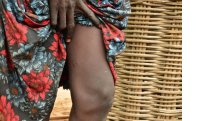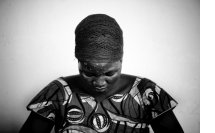Feedback/Comments from Our Readers
|
 Comments, questions and feedback is always welcome. Comments, questions and feedback is always welcome.
|
|
Global Health Rounds - April 9, 2018
|
We're always looking for new speakers and ideas for topics for Global Health Rounds for the new coming up academic year in the Fall 2018. If you have speakers or topics, please contact Cheryl Knowles at GHFoMD@ualberta.ca.
|
|
Mosul: Lives saved, credibility lost?
|
After enduring more than two years under the control of so-called Islamic State, the people of Mosul were again thrown into war when Iraqi and allied forces moved to retake the city in October 2016.
In the extreme destruction that results when heavy munitions meet urban structures, an estimated 9,000-11,000 civilians were killed and thousands more wounded. Many of those wounded had the improbable experience of being treated not by military medics but by volunteer emergency medical technicians from New York City.
As the response of the Iraqi state and armed forces was lacking, the World Health Organisation arranged with the pro-government forces to coordinate the emergency trauma response system within the military operation – an unheard of frontline military-humanitarian collaboration on such a scale. When most of the usual non-governmental outfits it works with declined to participate – for reasons of principle, security or both – WHO turned instead to an assortment of private and volunteer-based groups. Many volunteers had never before worked in a conflict setting. As the troops moved in, the trauma response system, designed along a standard military model, was quickly up and running. Traditional humanitarian responders, such as Médecins Sans Frontières, remained at a distance, providing medical services further from the fighting.
|
|
We invest millions in health, but still millions are dying
|
 TB – a disease that continues to plague the poorest TB – a disease that continues to plague the poorest
When I was a student in King George’s Medical College, India, a group of doctors came from the UK to visit our hospital. They said to my Professor, May we see a tuberculosis (TB) patient.”
They wanted to see just one patient as a learning experience, because at that time, TB had largely been eradicated from high income countries. I recall my Professor’s reply: We have wards and wards full.” This was in the 70s.
Today, there are 10.9 million new TB cases in the world every year.
A disease which is as old as the hills has become a global pandemic, leading to huge suffering, economic loss and deaths. In fact, TB has been responsible for the death of more people than any other infectious disease in history. In 2006, I established Operation ASHA with a focus on TB, the biggest health crisis in the world and , which the World Health Organization declared a ‘global emergency’ in 1993.
To read more about this article go to http://blogs.lshtm.ac.uk/
|
|
South Sudan Halts Spread of Crippling Guinea Worms
|
 South Sudan, the world’s youngest nation, appears to have stopped Guinea worm disease within its borders, the country’s health minister announced Wednesday.
“Having known the suffering it inflicted, one is very happy today,” the minister, Dr. Riek Gai Kok, said. “Future generations will just read of Guinea worm in the books as history.”
Only 30 worm infestations were detected last year, 15 in Chad and 15 in Ethiopia. When Mr. Carter began the eradication drive in 1986, there were an estimated 3.5 million cases in 21 Asian and African countries.
|
|
Lassa fever and global health security
|
Summary:
Seeing the terms “viral haemorrhagic fever” and “west Africa” together will conjure grave images for our readers. The 2013–16 Ebola virus disease epidemic was an unprecedented event, not only in terms of illness and death but also for showing the frailties of international preparedness for infectious disease outbreaks. Nigeria is in the midst of its largest ever outbreak of Lassa fever. At the same time, a mooted 80% cut to the US CDC's Global Health Security Agenda threatens to create a vacuum in essential epidemic mitigation activities.
|
|
Health authorities issue warning on monkeypox outbreak
|
 Labelling it a “concern for global health security”, the US Centres for Disease Control and Prevention (CDC) have sounded the alarm about a surge in cases of a sometimes-fatal close relative of smallpox called monkeypox.
In its Morbidity and Mortality Weekly Report, the CDC notes a “recent apparent increase in human monkeypox cases across a wide geographic area”, and calls for urgent public health action and international collaboration to head off the threat of a pandemic.
Monkeypox is described by the World Health Organisation as being similar to smallpox. Primary infection is caused by contact with the bodily fluids of sick animals, but cases of human-to-human transmission have also been documented.
The disease presents in two phases. After an incubation period of up to three weeks, victims experience up to five days of intense fever, headache and muscle pain. This is followed by a rash, typically on the face, palms and soles of the feet, and sometimes across the entire body. The rash period lasts for around three weeks, after which recovery or death occurs.
|
|
The new WHO decision-making framework on vaccine use in acute humanitarian emergencies: MSF experience in Minkaman, South Sudan
|
Abstract
Introduction
The main causes of death during population movements can be prevented by addressing the population’s basic needs. In 2013, the World Health Organization (WHO) issued a framework for decision making to help prioritize vaccinations in acute humanitarian emergencies. This article describes MSF’s experience of applying this framework in addition to addressing key population needs in a displacement setting in Minkaman, South Sudan.
To read more about this article go to
|
|
|
|
Save the Dates of Local Events!
|
Annual Rich Man Poor Man Dinner Event 2018
April 7, 2018
Time: 6:00 pm to 9:30 pm
Please note if you have any resaleable items for the SIHA silent auction, please email me at GHFoMD@ualberta.ca. Thanks for those who donate. |
|
Conferences, Symposiums & Lectures
|
Save this link to your favorites as I update it daily will all events, symposiums, etc., just click here.
=========================
Global Health & Innovation Conference
April 14-15, 2018
Yale University
New Haven, CT
|
|
Call for Abstracts/Submissions
|
Global Health & Innovation Conference at Yale on
April 14-15, 2018
is calling for abstracts.
|
|
Newsletter & Special Journal Editions
|
|
|